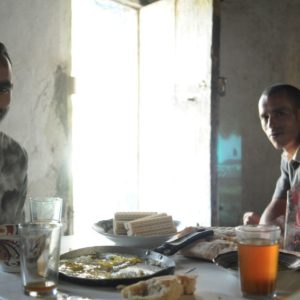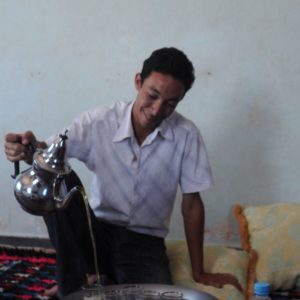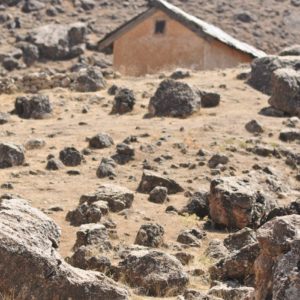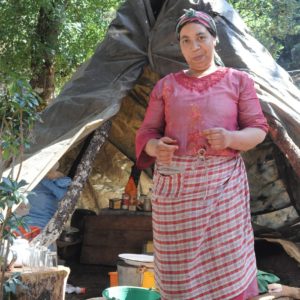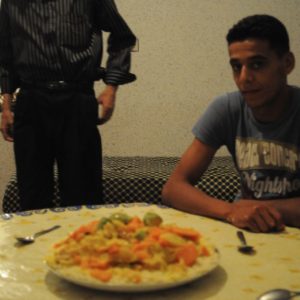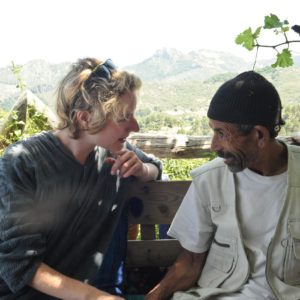Morocco, with an expatriate population estimated at 3 million worldwide, leads emerging countries in emigration.
The number of Moroccans settling permanently abroad is highest in Europe, and is increasing in North America.[1. Ethnic Origin (247), Single and Multiple Ethnic Origin Responses (3) and Sex (3) for the Population of Canada, Provinces, Territories, Census Metropolitan Areas and Census Agglomerations, 2006 Census – 20% Sample Data, 44,630 persons listed Moroccan as their ethnic origin (among whom 16,520 also listed other origins) sur 31,241,030.] The Moroccan regulations of 1972 targeting this diaspora have not succeeded in slowing it down. On the contrary, by the year 2000, legal immigration had increased sevenfold, while return migration remained among the lowest in all immigrant groups. Furthermore, undocumented migrants are currently estimated at several hundreds of thousands worldwide.[2. Hein de Haas, “Morocco: From Emigration Country to Africa’s Migration Passage to Europe,” Migration Information Source, http://www.migrationinformation.org/Profiles/display.cfm?ID=582.]
I undertook an investigation of this ongoing exodus by collecting testimonies on site and relating them to the socio-economic context of Morocco. Will the intended social development – namely, King Mohammed VI’s recent employment-generating and educational programs – ever counter-balance opportunities sought abroad? I am bringing forward the stories of a man who has left, of one who wishes he had, and one who will try. Abedellah and Ismail’s stories paint the picture of illegal labour migration, the first by voicing the prospects sought abroad, the second by exemplifying the labour market shortcomings avoided by taking off. To touch upon better-documented legal emigration, I single out Bou Ker’s aspiration to study in France, suggesting the breadth of this desire to depart among Moroccan society.
The Journey
Going against the Mediterranean tide, I crossed the strait of Gibraltar in August 2009. For three weeks, my companion and I trodded the roads less travelled between Ceuta and Marrakesh. Of the lower working class, only the people making a living off of tourism and the inhabitants of rural areas, as yet untouched by modernity, were seemingly spared the desire to leave; when we said we came from Italy, everyone had a friend, a cousin living there; Inshallah they would join them one day. We enquired about this desire to relocate, insofar as a conservative Muslim society would allow two supposedly married foreigners eager to communicate in French, Spanish and rich sign language.
The two widest-spread contentions we encountered were that higher-paying jobs and better education await abroad. To this are added governmental incentives, meant to sustain the population abroad. Initially favoring inflow of capital brought by emigrants seeking fortune abroad, the government has today implemented reforms to counter Abdellah and Bou Ker’s positions.
Those Who Leave
Seduced by Illegal Labour
Employed in a textile factory in 1998, Abdellah, age 16, was on holiday on the Northern coast when he risked crossing the Mediterranean illegally. He recounts with stunning casualty how he decided to walk onto a ship departing to Spain, on a whim, leaving his companions behind. The woman checking tickets looked at him as he embarked. He looked back at her, empty-handed. She gazed away, and off he went.
The boat cast anchor in Almeria. Within hours, the teenager had found shelter thanks to two compatriots. He met them upon setting foot on the harbor, and they took him to work in a field the following day. He was to contribute to Spain’s hothouse agriculture for the next couple of years. Like Italy, Spain emerged in the mid-eighties as a destination for labour migration. Abdellah was to remain in Spain illegally until 2003, when the government granted him legal status through one of several regularization campaigns started in the late 1980s. Such leniency has spurred fierce reactions amongst native Spaniards. In February 2001, 5,000 people reacted violently to the 70,000 residency permits granted to illegal immigrants in El Ejido, near Almeria.[3. Gregory White, “Risking the Strait : Moroccan Labour Migration to Spain,” Middle East Report, Spring 2001.] During three days, the streets resonated with the words “out with the Moors!” Abdellah has experienced one of the most extreme displays of xenophobia. Between an invitation to help ourselves to more tea and a praise of Italian soccer players, Abdellah slipped a word about his father-in-law’s suicide. The Murcia native had jumped from the roof of the church under which his daughter was to be wed to a Moroccan on the very same day.
Benefits Outweighing Risks?
The price to pay to integrate a hostile society might be high, but the employment opportunities keep on drawing more potential workers. While extremely low by European standards, the salary of an immigrant like Abdellah amounts to four times what he would earn in Morocco. The roof under which he welcomed us was erected thanks to the savings he sent back home. Such practices are second to oil revenue in world trade. In 1998, 5% of Morocco’s GDP came from registered remittances, making the country one of the biggest receivers of such income in the world. Common amongst emerging countries, Morocco was the fourth most important beneficiary from this practice in 2003. This alternative source of revenue contributes to prosperity, and in so doing releases pressures from the government to create employment. The Moroccan monarchy has hence contributed to pushing migrants abroad by providing structure for the inflow of such capital. In 1978, the Crédit Populaire du Maroc was given the task of gathering remittances from emigrants. It was so successful it is now one of the country’s largest banks.[4. Michael Collyer and others, “Migration: the EU-Moroccan experience,” Journal of Ethnic and Migration Studies, December 2009.] To the approximate 3.5 billion dollars registered at which currently stand official remittances must be added the difficultly estimable money entrusted – most often by illegal immigrants – to a friend going back, or given in person. The actual amount of remittances is hence estimated to be about a quarter or one third higher. The attraction of the almost guaranteed labour waiting abroad remains the predominant force pulling migrants towards new destinations.
When asked if he would ever settle back home, Abdellah sneers: “What is there for me to do here? I can only sell drugs!” For an uneducated young man, such pessimism is justified. Abdellah at least had the luck of leaving his native village to sew buttons in Marrakesh. In 1989, the unemployment rate amongst urban youth was 30%. Today, it has risen to 33%.[5. US Bureau of Near Eastern Affairs: Morocco 2010.] While enjoying a break in front of a mosque in Fes, we met with a youngster as idle as us. Ismail has been unemployed since 2004. While loading a barrel of acid onto a truck, Ismail sustained third-degree burns. Since his employer did not provide any type of compensation, Abdellah does little handy jobs here and there to reimburse the medical fees, which his parents were barely able to afford. The accident left him visibly scarred across the right side of his face. Abdellah believes this mark to be playing against him in his job search – it can be misread as the disfiguration of thieves sometimes practiced by traditional Muslim communities.
Showing the way
Morocco is the primary launching area of illegal immigration from North Africa into Spain. Since Abdellah crossed the strait, border controls have supposedly been tightened. In July 2006, 27 EU states and 27 African states met in Rabat for the first Euro-African ministerial conference on migration and development. Morocco and Spain have signed naval patrol agreements in 2004 to intercept pateras, the precarious rafts with which the least lucky illegal migrants try to reach the European continent. Morocco has added more barbed fences around Ceuta and Mellila, the much contested enclaves that remain under Spanish control. However, such measures are said to simply displace migration.[6. Said Saddiki, « L’enjeu caché des clotûres de Ceuta et Melilla », Le devoir, October 26, 2009] For instance, Abdellah departed from the city of Nador, a couple of kilometers from Melilla. Since he came back to visit his family, his papers have been stolen. He had acquired them in 2003. Had his daughter not been born in that year, he might not have even bothered going through the procedure. It does not matter that his documents have disappeared now, for he has already crossed back to Spain without being bothered by the police. He says officers do patrol the harbor, but never actually enter the water.
Those Left Behind
Infrastructure and Educational Reforms
Some things have changed for the better since Abdellah’s departure. Despite Morocco’s reluctance to embrace democracy, governance has undeniably evolved for the best. We were to get a sense of monarchic rule within hours of setting foot in the country. Strolling along the sinuous streets of Tetouan, we caught a glimpse of the royal motorcade speeding by us during the annual tour of the sovereign. The printed image of King Mohammed VI was to follow us throughout our journey; accounts of his deeds were to reach us through the state-controlled press and public opinion. Notwithstanding, economic growth has increased by 5% yearly since the King’s ascent to the throne in 1999, and the country has attained the status of a middle-income country. The next most pressing issue for the so-called “King of the people” is social development. Slight progress had been made at the end of the ruthless monarchy of Hassan II, Mohammed’s father, but the turning point came in the form of the May 2005 National Initiative for Human Development. His Majesty is undertaking the tremendous challenge of overhauling education, providing further access to basic infrastructure and services, and boosting employment.
Reforms bearing fruits
In a cluster of houses along the road between the Middle Atlas cordillera and the city of Beni Mellal, Abdellah’s sisters and mother now perform their daily tasks to the incessant sound of the television. The television might have been purchased thanks to Abdellah’s help, but the American videoclips that spice up the family’s routine were brought to them by the King’s rural electrification program. The house is also equipped with running water, which is fortunate considering that only 10% of the INDH budget is destined to water, sanitation and flood protection. Nonetheless, the country has already reached 35% in its targets of connection to water supply. The current budget for INDH comes to a large extent from the Hassan II Fund for Political and Economic Development – established in the last year of the precedent governance- but goes far beyond any previous social development effort. The US had registered over 4 million beneficiaries of the program in 2010 out of a population of 32.5 million. Interestingly, Mohamed VI had announced this figure to be at 6 million for the sectors of health, education and housing as early as 2006. At the time of our meeting, Ismail was finally to receive a skin transplant. Had that barrel exploded a couple of months later, this much-needed treatment might have come earlier, for 60% of the INDH budget is invested in health and social services.
It is very early to assess the success of such a young plan. In the area of alphabetization, the latest census predates the INDH of a year. Education is free and compulsory until the age of 15 since 2002, but children are often sent to work earlier, especially in rural areas. The illiteracy rate was hence estimated at 50% of the population in 2004. It is the highest of the Arab world, together with Yemen.[7. CIA World Factbook : Morocco.] In 2000, Mohamed VI set the aim of lowering illiteracy levels to 20% in 2004, which was not reached. The World Bank continues to classify Morocco’s educational system as one of the least developed of Northern Africa and the Middle-East.
Leaving to be desired
The higher education system already seems more promising. Bou Ker comes from Taguelft, a Berber village of the Middle Atlas. He descends from the nomadic tribes that populated the mountains before the arrival of the Arabs in the 7th century. His family settled down in the eighties. He is a second-year business student at Beni Mellal’s brand new university. Before meeting Bou Ker, we had met doctors from Rabat enjoying holidays in the mountains, and business school graduates back to the countryside for lavish wedding celebrations. Unlike them, Bou Ker does not belong to the upper class. The carpeted interior of the multi-generational dwelling where he welcomed us was barely furnished; its unadorned walls were of cracked clay and straw. Beni Mellal is now one of the 14 public universities, which opened in 2006. The Business school admits 700 first-year students. 250 make it to the second year if they can keep a 50% average. There, Bou Ker lives in a residence for free. His cousin, who disappeared as soon as she served us couscous, is a rare representative of the 10% of literate women of rural Morocco. She studies Islamic education in Beni Mellal. Bou Ker owes the privilege of studying to his resourceful father who managed to start a business despite his illiteracy. His older brother was sent to study in Marrakesh because Beni Mellal university was not yet open. He is currently working on a hospital project in the area. Bou Ker has inherited the entrepreneur spirit that runs in his family. Last year, he helped found an association that promotes Berber culture. The week-long festival they had planned was unfortunately cancelled for agrarian elections, but they were able to present the project at university, fundraise and recruit several professionals.
Bou Ker speaks one of the three Berber dialects, Arabic, and French, which remains the official language of business in Morocco. He is less fluent than some upper class professionals we had met. Regardless, he dreams of pursuing his studies in France. Emigration to France began with the 1912-1956 protectorate. The guest worker programs of the sixties had expanded labor migration beyond the territory of the old French colonizer, bringing an influx has now been redirected to Spain and Italy; however, the language legacy explains why France remains the primary destination for higher education. This path is however much more difficult; according to Bou Ker, the admission requirements are unfairly high, and the visa application procedure awfully complicated.
The International Outlook
One fifth of the total expenditures of the INDH were initially planned to come from international investment aid. Morocco will need much more. Estimates predict that 2.8 billion are needed to rid the country of its teeming slums, whereas the 16,100 projects implemented were worth 1.21 million. While we were exploring the country last August, the World Bank investment increased, and a new strategy has been signed in January. It is a good start, but if Morocco does not change its attitude towards Western Sahara, the international community is unlikely to heighten its help.
Even though the international community has hailed Morocco’s new direction, skeptics point to the unlikelihood of change under undemocratic governance.[8. Ivan Martin, “Morocco : The Bases for a New Development Model? (I): The National Initiative for Human Development (INDH),” Real Istituto Elcanto Publication, May 2006.] Morocco finally seems to have a forward-thinking monarch who does not threaten to use of his power to dissolve Parliament or remove his Prime Minister from office. Mohamed VI sometimes grants more reforms than conservatives Islamists can accept, such as in his recent legislation on women’s rights. However, the sovereign clings to power while he should delegate more tasks to the walis – the heads of the 16 administrative regions – in order to effectively implement reform. The government customarily sentences journalists calling for constitutional change to 25 years of prison.
Unfaltering Pessimism
Hassan II once said his country to be “rooted in Africa, watered by Islam and rustled by the winds of Europe.” The winds that pull migrants away from Morocco are also fueled from the inside. At the population level, substantial change in the dire social conditions is yet to be felt. The government’s attitude is ambivalent. The King pledges to fight undocumented migration, but pushes for the increase of legal migration quotas. The government is aware of the importance of remittances for the most needy, whose relatives have usually encountered work abroad illegally. Furthermore, the share of the INDH allocated to financing income-generating activities has already been cut down. The likelihood of aspiring illegal migrants finding an alternative way of supporting their families remains meager. Abdellah, Ismail and Bou Ker’s pessimism does not seem close to fading away as long as Morocco remains burdened with the social indicators of the developing world.
Abdellah calls me from time to time, Letizia, cuenta-me algo! Once, he asked if I could introduce him to a girlfriend of mine over the phone. But Abdel, I’m in Canada. It must be noted that Abdellah has left his wife and child in Murcia and is now looking to start anew- at the time of our encounter, he had mentioned Galicia. When borders appear so porous, even the Atlantic Ocean could be reduced to the strait of Gibraltar.

